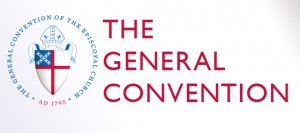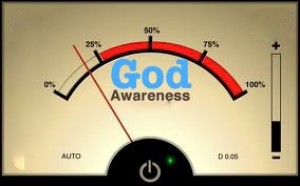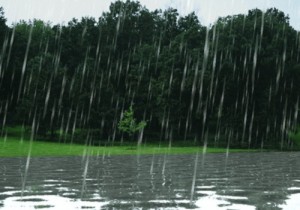Revised Common Lectionary readings for the Seventh Sunday of Easter (Sunday after the Ascension): Acts 1:15-17, 21-26; Psalm 1; 1 John 5:9-13; and John 17:6-19.
 The story from the Acts of the Apostles this morning tells us that the apostles, in choosing a replacement for Judas Iscariot, relied on a game of chance. They couldn’t decide between two candidates so, rather than voting, they “cast lots”, drew straws, rolled the dice. Matthias got the short straw. As I was contemplating these lessons, and particularly this story, this week, I was also assaulted by radio and television advertisements for the new Horseshoe Casino in downtown Cleveland. And just like the lessons of the past few weeks, this coincidence of events triggered a memory of childhood. But this week, the memory was not of summers spent with my grandparents, it was of Saturdays spent with my father.
The story from the Acts of the Apostles this morning tells us that the apostles, in choosing a replacement for Judas Iscariot, relied on a game of chance. They couldn’t decide between two candidates so, rather than voting, they “cast lots”, drew straws, rolled the dice. Matthias got the short straw. As I was contemplating these lessons, and particularly this story, this week, I was also assaulted by radio and television advertisements for the new Horseshoe Casino in downtown Cleveland. And just like the lessons of the past few weeks, this coincidence of events triggered a memory of childhood. But this week, the memory was not of summers spent with my grandparents, it was of Saturdays spent with my father.
My father, R. York Funston, was a Certified Public Accountant in Las Vegas, Nevada. During the 1940s and 1950s one of the ways the authorities kept tabs on the gaming industry was through weekly audits of the casino records conducted by state-appointed CPAs, of which my dad was one. For some reason, the Gaming Control Board thought Saturday mornings would be the best time for the books to be collected, so that was when he would make the rounds of the five casinos he was responsible for. It was also the day my mother did her housekeeping and she didn’t want me underfoot, so I would accompany my dad as he drove through Las Vegas visiting the casinos.
The Las Vegas of the early 1950s was rather different from the city one visits today. In those days, Las Vegas as about the size of current-day Medina, Ohio. A permanent population of right around 30,000 people, a downtown like that of any other city with a Sears-Roebuck, a Rexall drug store, a locally owned department store called Ronzone’s, a movie theatre that showed double-features, and half-a-dozen or so casinos. We lived near the south edge of town in a post-war housing development called Huntridge. Just a couple blocks south of us was Sahara Boulevard, south of which was the desert and a collection of horse ranches called Paradise Valley.
Dad and I would get up and leave the house at about 6 a.m. on Saturday mornings and drive through Paradise Valley headed for the Tropicana Hotel & Casino to pick up the first set of books. Then we’d hit three other places on the strip and finish up downtown at Binny Binion’s Horseshoe, the casino which eventually became the big publicly-traded corporation now running a casino in Cleveland.
This was not, in terms of miles traveled, a very long trip, but it would take about four or five hours because at each stop my dad would have a cup of coffee and a conversation with the casino managers. At each place, I would get to spend time with a change girl or a cocktail waitress while Dad conducted his business, and sometimes I’d get to meet other people. For example, I met Frank Sinatra and Dean Martin and all the rest of the Rat Pack when I was four years old. But when we got to Binion’s, I got to do something else.
The Horseshoe was on the corner of Fremont, the downtown main street of Las Vegas, and Third Street, and the whole corner of the building was open to the street. Right at the corner, visible for everyone passing by to see, was a big glass box in which, it was said, there was $1,000,000 in U.S. currency in bills of various denominations. On either side of the box stood a uniformed guard carrying a shotgun. Casino patrons could get inside that box with all that money and large fan would blow a whirlwind around them and lift those bills so they were flying all around the person. I’m not sure how long the patron had, maybe a minute, but whatever it was, the idea was that during that period of time whatever bills the person could catch and hold on to, they got to keep. My dad would leave me there at the entrance to Binion’s Horseshoe and let me watch those people trying to catch money while he went inside and got the books. I never saw anybody catch very many bills – that’s really hard to do.
So when the Bible describes a game of chance as the means by which the apostles chose a successor to Judas, and the radio is broadcasting ads for a new casino in Cleveland, I remember those childhood visits to Binion’s Horseshoe and those silly people grabbing at those flying bills.
Luke does not tell us whether Matthias was commissioned in any way for his ministry as Judas’s replacement, but I think we can be fairly certain that he was. Elsewhere in Acts Luke describes acts of laying of hands and prayer to commission people for special ministries, and church historians assure us that from the very earliest days of the church this was the regular practice. Today we are commissioning a group of St. Paul’s members to perform a special ministry as part of what is called a Grow My Church Task Force. The “my” in “Grow My Church” refers to Christ; this title is a paraphrase of Jesus’ “Great Commission” to the Apostles, the commandment given them just before his ascension into heaven. St. Matthew reports it in these words:
Go therefore and make disciples of all the nations, baptizing them in the name of the Father and the Son and the Holy Spirit, teaching them to observe all that I commanded you; and lo, I am with you always , even to the end of the age. (Matt. 28:19-20)
Jesus refers to his intention to do this in today’s gospel from John, in what is called his “high priestly prayer” offered to God on the night of the Last Supper. In fact, this prayer is the Apostles’ commissioning by Jesus for the ministry they will be given:
Sanctify them in the truth; your word is truth. As you have sent me into the world, so I have sent them into the world. And for their sakes I sanctify myself, so that they also may be sanctified in truth. (John 17:17-19)
The word for sending here in the original Greek of the New Testament is apostello and it is from this word that we get our word apostle – an apostle is one who is sent.
In a few minutes, we will formally commission the Task Force, we will make them apostles sent to do a job, but before we do, I want to tell you what the Vestry, our parish governing board, has charged them to do. At its last meeting, the Vestry adopted this resolution:
We, the Vestry of St Paul’s Episcopal Church formally charge the members of the newly formed Grow My Church! Team, which includes Barbara Baird, Shelley Triebsch, Mark Hansen, Joe Mahn, David Muffet, Steve Rucinski, and Ray Sizemore, to help us learn more about our congregation. We commend to you the Grow My Church! course and ask that you exercise all diligence in prayer and study, and return to us with recommendations. Therefore, in the course of your study we formally charge you to develop a Congregational Growth Plan to help reinvigorate our church and better live out our role in The Great Commission. We pledge to review your recommendations, intending to fruitfully apply your work as the Holy Spirit guides us. We expect to hear back from you in four months and pledge to keep everyone involved in our prayers
The Task Force will be meeting on Monday evenings for twelve weeks. Each meeting will address a particular topic:
- Organization
- Landscape (What are the societal and community factors influencing our church?)
- Leadership (How does our governance structure work? How could it be improved?)
- Purpose (What is our mission? How well is it known to our members and to non-members?)
- Worship (Why we gather on Sunday? What do we do? What should we do?)
- Spirituality (What is our church’s relationship with God?)
- Service (What are our community outreach ministries? Are there others we should be doing?)
- Fellowship (What about the social time we spend together? Can it be improved?)
- Generosity (How do we talk about money? How do we raise it, use it, steward it?)
- Hospitality (How are we at welcoming the visitor and incorporating the newcomer?)
- Invitation (How well do we do at asking others to join us? What can we do to make our invitations more frequent and more effective?)
- Growth Plan (Putting it all together with action recommendations reported to the Vestry.)
OK … so that’s who they are, what they’ve been commissioned to do, and how they’re going to go about doing it.
Here’s what I hope they (and we) won’t do.
First, I hope they won’t be like those people in the glass box at Binion’s Horseshoe grabbing at the flying money. I sometimes feel that that is what the church has been doing for the past three or four decades. We have known that church membership has been declining, that Average Sunday Attendance has been going down, but we haven’t known what to do about it, so we stand in the whirlwind and grab at anything that flies by. We’ve had program after program that was supposed to reinvigorate the church and make us grow. We’ve had canned studies called Edge of Adventure, Living the Adventure, Faith Alive, Acts 29, and on and on. We’ve had spiritual experiences like Cursillo, Marriage Encounter, the charismatic movement, and the so-called contemporary worship craze. We’ve done Natural Church Development and we’ve done Unbinding the Gospel.
Some of these things have worked for while; some of these things have taught us lessons we ought to remember; some of these things actually have done harm. But much of it has been “like chaff which the wind blows away” or like the dollar bills flying around in that glass box. I hope this Task Force doesn’t repeat that experience but will be solidly grounded and take from the things we’ve tried and the things they study some good, reliable insights on which to make recommendations to the Vestry and to all of us. I hope that in this study this Task Force will be “like trees planted by streams of water, bearing fruit in due season.”
Second, I hope they won’t feel constrained by the past. I hope they won’t use (or even hear) two sentences. One is “We’ve never done it that way before” and the other is “We’ve always done it that way before.” There are lots of things that we (throughout the church not just in this parish) have not done that we clearly ought to be doing; and there are plenty of things that we’ve done for years that we need to abandon. Someone recently reminded me of an observation made back in the 1990s by Father Robert Farrar Capon, one of the great writers of our church. Fr. Capon, in a book entitled The Astonished Heart: Reclaiming the Good News from the Lost-and-Found of Church History, wrote:
The church can’t rise because it refuses to drop dead. The fact that it’s dying is of no use whatsoever: dying is simply the world’s most uncomfortable way of remaining alive. If you are to be raised from the dead, the only thing that can make you a candidate is to go all the way into death. Death, not life, is God’s recipe for fixing up the world.
As John wrote in today’s epistle, God intends for us to have eternal life, “and this life is in his Son,” and his Son said:
Very truly, I tell you, unless a grain of wheat falls into the earth and dies, it remains just a single grain; but if it dies, it bears much fruit. Those who love their life lose it, and those who hate their life in this world will keep it for eternal life. (John 12:24-25)
I believe that is as true for the church as a community as it is for each of us as individuals, but just as individuals must die to self in order to be born again, the church must die to all the things, the practices, the ways-we’ve-always-done-it that may have worked in the past but that are now holding us back.
Third, I hope that you won’t ignore their work. I hope you will participate in this process. As the Task Force works through these twelve weeks of study, they will be seeking your input. This white board over here will be in the hallway each week with a question or maybe two. There will be inserts in your bulletin for your answers. Please give them and put them on the board with those colored magnets you see. And sign them! The Task Force cannot respond to anonymity – they may want to get more information from you and they will want to respond to you. So give them your thoughts and take ownership of them. Have the courage of your convictions and let the Task Force have your testimony about your church.
Finally, after we commission them, we will hold them responsible for producing an action plan to report to the Vestry within four months pursuant to that resolution. I hope that they won’t just walk away from it. I hope that they, in turn, will hold us responsible to do the things in that plan. They are a Task Force and when their task is done, they will be discharged and their team disbanded, but I hope they will continue to be active in our pursuit of the Great Commission making sure that we do what they determine in this study we need to do.
The liturgy of commissioning the members of the Grow My Church! Task Force is in your bulletins. Would you please pull that out while I ask the members of the Task Force to step forward….
 Just a few days ago the Public Religion Research Institute issued a new report entitled A Generation in Transition: Religion, Values, and Politics among College-Age Millennials. A “millennial” is somone currently 18 to 24 years of age, the youngest cohort of adults. (From my point of view at nearly 60 years of age these are children; my son and daughter are both older than this group!) According to the report, these young adults are more likely then the general population to be religiously unaffiliated; one-quarter of them so identify themselves. Interestingly, most of those who do so were reared in religiously affiliated households. The greatest movement away from religious affiliation was seen among those raised in Catholic and white mainline Protestant families. It would appear that we have not been doing a very good job of teaching our children “that they in their turn might tell it to their children”!
Just a few days ago the Public Religion Research Institute issued a new report entitled A Generation in Transition: Religion, Values, and Politics among College-Age Millennials. A “millennial” is somone currently 18 to 24 years of age, the youngest cohort of adults. (From my point of view at nearly 60 years of age these are children; my son and daughter are both older than this group!) According to the report, these young adults are more likely then the general population to be religiously unaffiliated; one-quarter of them so identify themselves. Interestingly, most of those who do so were reared in religiously affiliated households. The greatest movement away from religious affiliation was seen among those raised in Catholic and white mainline Protestant families. It would appear that we have not been doing a very good job of teaching our children “that they in their turn might tell it to their children”! “Most blessed” be a murderess? What is this? Yesterday, a friend and colleague who was only a little older than I am passed away after several months of pancreatic cancer, so I’m a little sensitive on the subject of death this morning. So, really! What is this?
“Most blessed” be a murderess? What is this? Yesterday, a friend and colleague who was only a little older than I am passed away after several months of pancreatic cancer, so I’m a little sensitive on the subject of death this morning. So, really! What is this? 
 How many of you have ever attended a potluck supper or potluck luncheon in this parish? Let’s have show of hands. OK – hands down. Those of you who have done so . . . have you ever known there to be an insufficiency of food at any such event? Ever? Keep that in mind, please, as we take a look at these lessons today.
How many of you have ever attended a potluck supper or potluck luncheon in this parish? Let’s have show of hands. OK – hands down. Those of you who have done so . . . have you ever known there to be an insufficiency of food at any such event? Ever? Keep that in mind, please, as we take a look at these lessons today. This psalm is actually optional for Morning Prayer, but it’s one I rather like, so I included it today. This psalm is a song of God’s abundance. Brotherhood and unity are likened to flowing oil and falling dew. ~ First, the oil. This is “fine oil” or, as another translation renders it, “precious” oil. The Hebrew is from the same root as used repeatedly in Genesis when God describes creation as “good”, towb. This isn’t just any oil! And it flows in copious quantities. This is not just a small amount dabbed on a forehead, such as the church does in the rite of chrismation at baptism or in the anointing of the sick; this is oil poured liberally over the head, flowing onto “Aaron’s beard”, and spilling onto robes. The Hebrew word peh meaning “edge” is here rendered as “collar”, but in older translations it was given the meaning “skirts”, which underscores even more the more the image of profligate abundance. ~ Then the dew. Look at a map of the Holy Land. Mt. Hermon is in southern Syria about 150 miles north of Jerusalem (“Zion”). Dew falls on the mountain in sufficient quantity to run off and water the hills of Zion far to the south. Again, profligate abundance! ~ Today is the start of the Episcopal Church’s 77th General Convention. Coincidentally, the Presbyterian Church USA is in the midst of its similar General Assembly. My prayer today is that brotherhood (is there a non-sexist term that conveys the same idea? – “siblinghood”?) and unity will be abundant and will prevail as the church seeks a path forward to carry out its mission of extending God’s blessing to all.
This psalm is actually optional for Morning Prayer, but it’s one I rather like, so I included it today. This psalm is a song of God’s abundance. Brotherhood and unity are likened to flowing oil and falling dew. ~ First, the oil. This is “fine oil” or, as another translation renders it, “precious” oil. The Hebrew is from the same root as used repeatedly in Genesis when God describes creation as “good”, towb. This isn’t just any oil! And it flows in copious quantities. This is not just a small amount dabbed on a forehead, such as the church does in the rite of chrismation at baptism or in the anointing of the sick; this is oil poured liberally over the head, flowing onto “Aaron’s beard”, and spilling onto robes. The Hebrew word peh meaning “edge” is here rendered as “collar”, but in older translations it was given the meaning “skirts”, which underscores even more the more the image of profligate abundance. ~ Then the dew. Look at a map of the Holy Land. Mt. Hermon is in southern Syria about 150 miles north of Jerusalem (“Zion”). Dew falls on the mountain in sufficient quantity to run off and water the hills of Zion far to the south. Again, profligate abundance! ~ Today is the start of the Episcopal Church’s 77th General Convention. Coincidentally, the Presbyterian Church USA is in the midst of its similar General Assembly. My prayer today is that brotherhood (is there a non-sexist term that conveys the same idea? – “siblinghood”?) and unity will be abundant and will prevail as the church seeks a path forward to carry out its mission of extending God’s blessing to all.
 Sometimes I think the Lectionary editors play games with us and today is one of them. They have combined this advice with Paul’s admonition to the young new bishop Timothy: “No longer drink only water, but take a little wine for the sake of your stomach and your frequent ailments.” (1 Timothy 5:23) Don’t drink wine. Drink wine. What’s it to be? ~ Hey! It’s the Bible. For nearly every point made somewhere in Scripture, you can find a counterpoint made somewhere else. It is possible to reconcile these two into a message of moderation, but that is often not the case and, in any case, reconciling or trying to harmonize contradictory passages of Scripture is a poor hermeneutic. ~ The Bible is an historic record and represents, among many other things, the changing understandings of God’s people. There is an arc or trajectory of understanding in scripture. There is development from bashing the heads of our enemies’ infants against the rocks (Psalm 137:9) through leaving the gleanings of the vineyard for the alien, the orphan, and the widow (Deut. 24:21) to loving your neighbor as yourself (Lev. 19:18) and, finally, to “this wine is my blood poured out for many” (Mark 14:24). The development may be inconsistent, there may be backsliding, but as the Rev. Dr. Martin Luther King, Jr., reminded us, “the arc of the moral universe is long but it bends toward justice.” That moral arc is witnessed in Scripture. ~ So have that glass of wine for good health, but “do not be among winebibbers.” (Prov. 23:20)
Sometimes I think the Lectionary editors play games with us and today is one of them. They have combined this advice with Paul’s admonition to the young new bishop Timothy: “No longer drink only water, but take a little wine for the sake of your stomach and your frequent ailments.” (1 Timothy 5:23) Don’t drink wine. Drink wine. What’s it to be? ~ Hey! It’s the Bible. For nearly every point made somewhere in Scripture, you can find a counterpoint made somewhere else. It is possible to reconcile these two into a message of moderation, but that is often not the case and, in any case, reconciling or trying to harmonize contradictory passages of Scripture is a poor hermeneutic. ~ The Bible is an historic record and represents, among many other things, the changing understandings of God’s people. There is an arc or trajectory of understanding in scripture. There is development from bashing the heads of our enemies’ infants against the rocks (Psalm 137:9) through leaving the gleanings of the vineyard for the alien, the orphan, and the widow (Deut. 24:21) to loving your neighbor as yourself (Lev. 19:18) and, finally, to “this wine is my blood poured out for many” (Mark 14:24). The development may be inconsistent, there may be backsliding, but as the Rev. Dr. Martin Luther King, Jr., reminded us, “the arc of the moral universe is long but it bends toward justice.” That moral arc is witnessed in Scripture. ~ So have that glass of wine for good health, but “do not be among winebibbers.” (Prov. 23:20) It rained here last night – pretty spectacular electrical storm, to be honest. The dog spent the night cowering under a table. This morning when I took her out at 6 a.m. the world was freshly washed. In the trees surrounding our home, birds of all sorts were singing and there was a sweetness in the air. Sprinkles with clean water, the earth had been cleaned of its uncleannesses, if only for a moment. ~ It is only a coincidental convergence of the two lectionaries (Episcopal Daily Office two-year cycle with the Revised Common Lectionary three-year cycle), but tomorrow’s Old Testament lesson is Ezekiel’s vision of the valley of dry bones in the next chapter of his prophecy. Dry bones, dessicated, dehydrated – emblematic of spiritual emptiness. Clean water, washing, witnessing, revivifying – emblem of the Spirit herself. ~ Tomorrow we will baptize and welcome into God’s household a young lady of about 10 years of age. I find it difficult to conceive of her having “a heart of stone” but I am convinced that in her baptism God will give her a new heart and write on her heart his law of love. Her life will become like the world after the rain, freshly washed and filled with light and sweetness. This is not to say that there will not be dry patches in her life; there are in every life, even the lives of the saints. However, nurtured by the church and sustained by the Spirit, she will be able to make it through those times with more than enough spiritual “moisture”. The Psalms constantly remind us that “the river of God is full of water” (65:9) and that God changes “deserts into pools of water and dry land into water-springs” (107:35). ~ In another vision, Ezekiel saw a river of water flowing from the temple. It flooded the land, in places ankle-deep, in others knee-deep, and in still others waist-deep. The water flowed everywhere and everywhere it flowed was to be the land of God’s people, not just Israel, but all of God’s people. The dry bones of all nations will be restored in the water of God’s river; God will sprinkle clean water upon us all. We call this baptism.
It rained here last night – pretty spectacular electrical storm, to be honest. The dog spent the night cowering under a table. This morning when I took her out at 6 a.m. the world was freshly washed. In the trees surrounding our home, birds of all sorts were singing and there was a sweetness in the air. Sprinkles with clean water, the earth had been cleaned of its uncleannesses, if only for a moment. ~ It is only a coincidental convergence of the two lectionaries (Episcopal Daily Office two-year cycle with the Revised Common Lectionary three-year cycle), but tomorrow’s Old Testament lesson is Ezekiel’s vision of the valley of dry bones in the next chapter of his prophecy. Dry bones, dessicated, dehydrated – emblematic of spiritual emptiness. Clean water, washing, witnessing, revivifying – emblem of the Spirit herself. ~ Tomorrow we will baptize and welcome into God’s household a young lady of about 10 years of age. I find it difficult to conceive of her having “a heart of stone” but I am convinced that in her baptism God will give her a new heart and write on her heart his law of love. Her life will become like the world after the rain, freshly washed and filled with light and sweetness. This is not to say that there will not be dry patches in her life; there are in every life, even the lives of the saints. However, nurtured by the church and sustained by the Spirit, she will be able to make it through those times with more than enough spiritual “moisture”. The Psalms constantly remind us that “the river of God is full of water” (65:9) and that God changes “deserts into pools of water and dry land into water-springs” (107:35). ~ In another vision, Ezekiel saw a river of water flowing from the temple. It flooded the land, in places ankle-deep, in others knee-deep, and in still others waist-deep. The water flowed everywhere and everywhere it flowed was to be the land of God’s people, not just Israel, but all of God’s people. The dry bones of all nations will be restored in the water of God’s river; God will sprinkle clean water upon us all. We call this baptism. These three similes – I am like a vulture in the wilderness; I am like an owl in the ruins; I am like a lonely sparrow – intrigue me. They are metaphors of solitude but worse than solitude, of loneliness, of being completely cut off. ~ The word translated as “vulture” in the NRSV is qa’ath; older translations rendered this as “pelican”. According to the lexicon the word signifies “a ceremonially unclean bird”, but the lexicon admits that the exact meaning of the ancient Hebrew is unknown. The root of the word is qow’ which means “to vomit”. From some bit trivia learned long ago, I recall that vultures defend themselves with intentional projectile vomiting. The simile depicts one so distraught , so distressed, so stricken that she keeps others away, spewing her grief onto those who would comfort her. ~ The Hebrew word translated as “owl” is kowc: owls also are ritually unclean birds. The lexicon tells us that it is “from an unused root meaning to hold together.” This simile perhaps suggests the same thing as the English phrase “barely holding it together”; amidst the waste and devastation of his life, the psalmist is barely holding on, hanging from his last thread, unable to handle one more thing even a small expression of sympathy and support without “losing it altogether.” ~ In the third simile, the psalm uses the word tsippowr, here translated as “sparrow” although more generically it simply means “bird”. This simile holds out hope where the others do not. The same word is used by prophet Ezekiel to paint a picture Jesus will later use as an encouragement to faith: “On the mountain height of Israel I will plant [a cedar], in order that it may produce boughs and bear fruit, and become a noble cedar. Under it every kind of bird will live; in the shade of its branches will nest winged creatures of every kind.” (Ezek. 17:23) Jesus will change the cedar to a mustard tree and promise that even the smallest amount of faith, faith the size of a mustard seed, can accomplish miracles. (Matt. 13:31-32; Matt. 17:20) For the lonely sparrow on the house-top there is the hope of flocking with others in tree planted by the Lord; for the lonely sparrow there is the hope provided by faith. ~ The rest of the morning psalm expresses that hope. The psalmist acknowledges gratefully that God “will look with favor on the prayer of the homeless; he will not despise their plea” and “their offspring shall stand fast in [God’s] sight.” No matter how cast out, unclean, despairing, or distraught, even the vulture and the owl, together with the sparrow, can come and make nests in the branches of the tree planted by God.
These three similes – I am like a vulture in the wilderness; I am like an owl in the ruins; I am like a lonely sparrow – intrigue me. They are metaphors of solitude but worse than solitude, of loneliness, of being completely cut off. ~ The word translated as “vulture” in the NRSV is qa’ath; older translations rendered this as “pelican”. According to the lexicon the word signifies “a ceremonially unclean bird”, but the lexicon admits that the exact meaning of the ancient Hebrew is unknown. The root of the word is qow’ which means “to vomit”. From some bit trivia learned long ago, I recall that vultures defend themselves with intentional projectile vomiting. The simile depicts one so distraught , so distressed, so stricken that she keeps others away, spewing her grief onto those who would comfort her. ~ The Hebrew word translated as “owl” is kowc: owls also are ritually unclean birds. The lexicon tells us that it is “from an unused root meaning to hold together.” This simile perhaps suggests the same thing as the English phrase “barely holding it together”; amidst the waste and devastation of his life, the psalmist is barely holding on, hanging from his last thread, unable to handle one more thing even a small expression of sympathy and support without “losing it altogether.” ~ In the third simile, the psalm uses the word tsippowr, here translated as “sparrow” although more generically it simply means “bird”. This simile holds out hope where the others do not. The same word is used by prophet Ezekiel to paint a picture Jesus will later use as an encouragement to faith: “On the mountain height of Israel I will plant [a cedar], in order that it may produce boughs and bear fruit, and become a noble cedar. Under it every kind of bird will live; in the shade of its branches will nest winged creatures of every kind.” (Ezek. 17:23) Jesus will change the cedar to a mustard tree and promise that even the smallest amount of faith, faith the size of a mustard seed, can accomplish miracles. (Matt. 13:31-32; Matt. 17:20) For the lonely sparrow on the house-top there is the hope of flocking with others in tree planted by the Lord; for the lonely sparrow there is the hope provided by faith. ~ The rest of the morning psalm expresses that hope. The psalmist acknowledges gratefully that God “will look with favor on the prayer of the homeless; he will not despise their plea” and “their offspring shall stand fast in [God’s] sight.” No matter how cast out, unclean, despairing, or distraught, even the vulture and the owl, together with the sparrow, can come and make nests in the branches of the tree planted by God.


